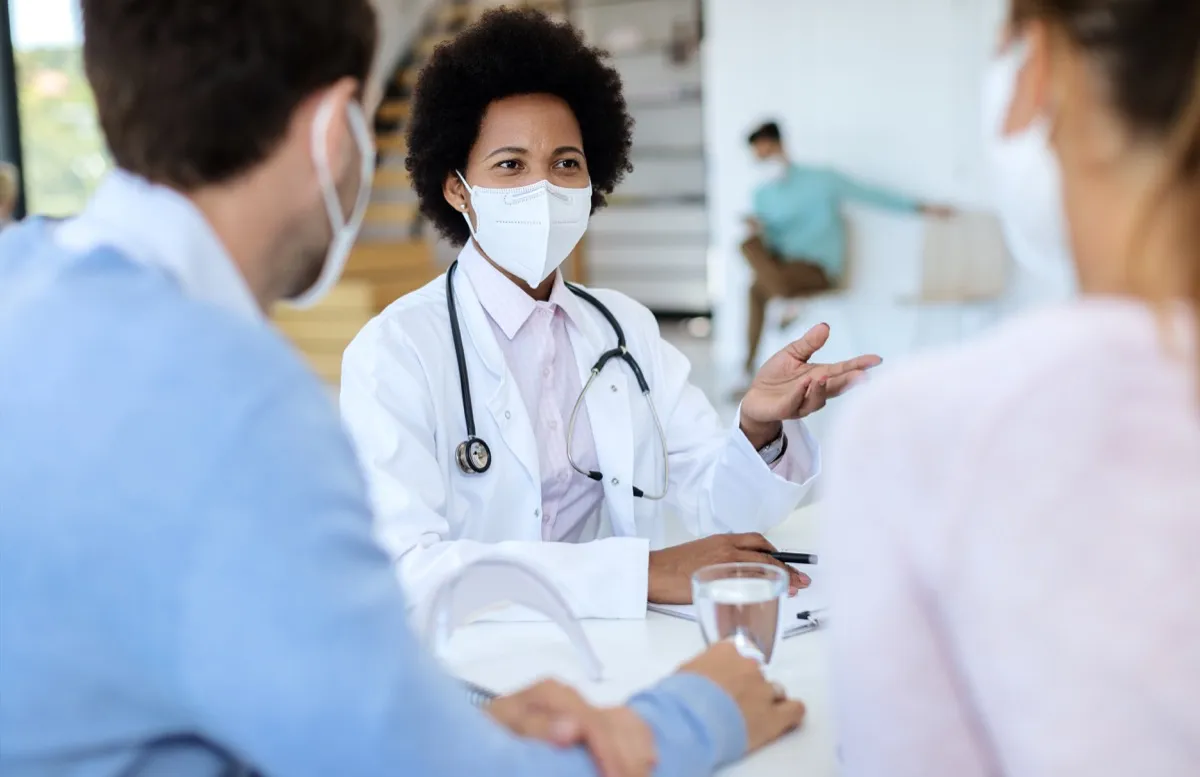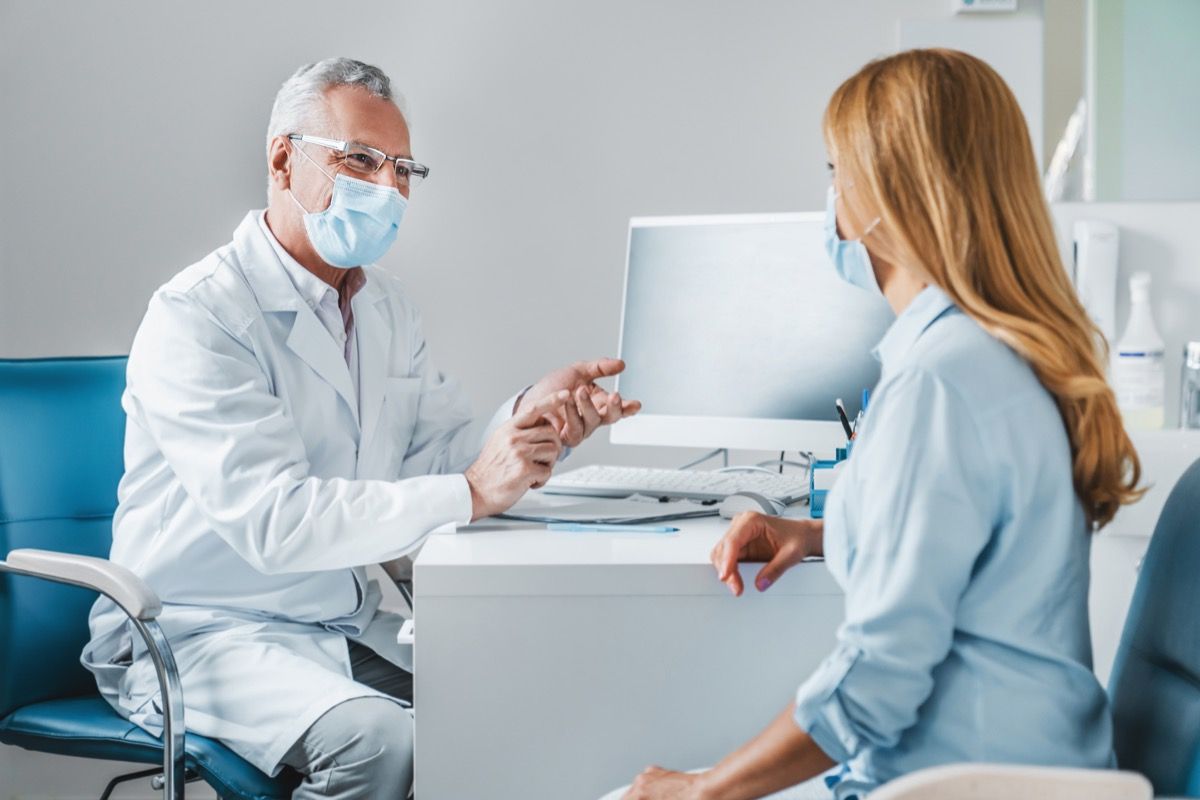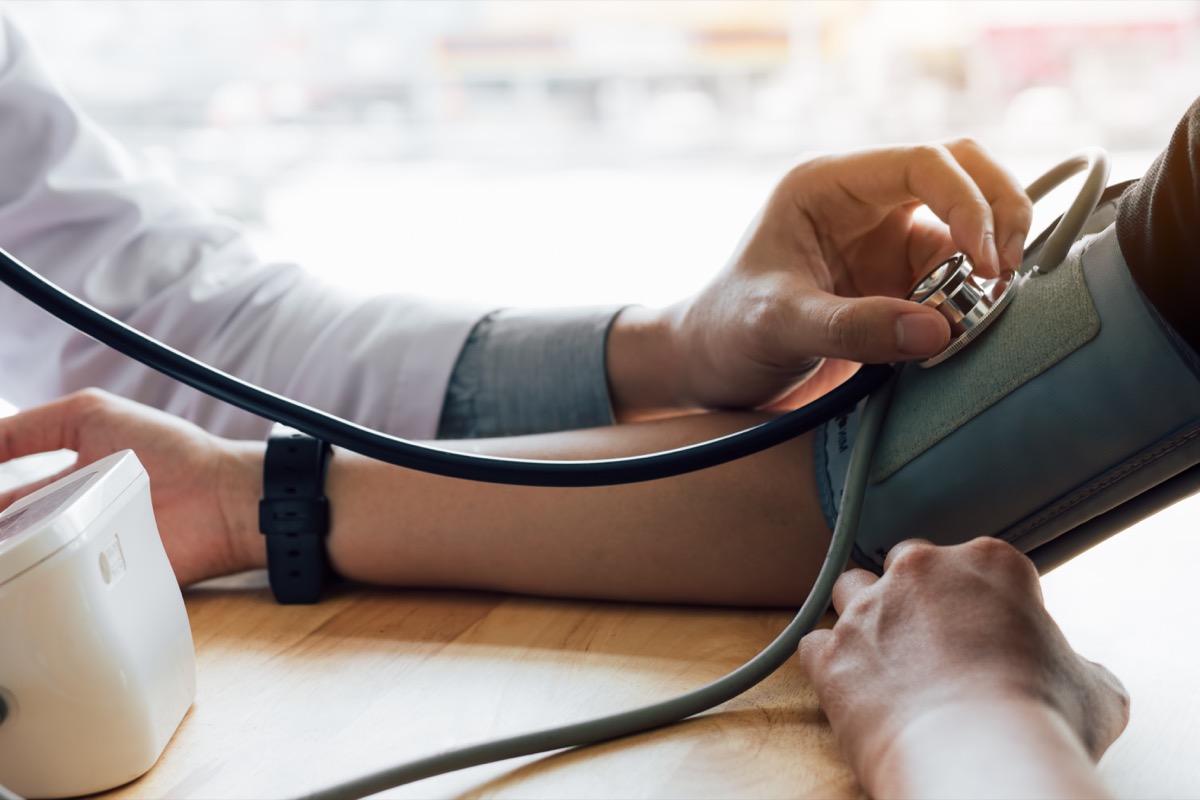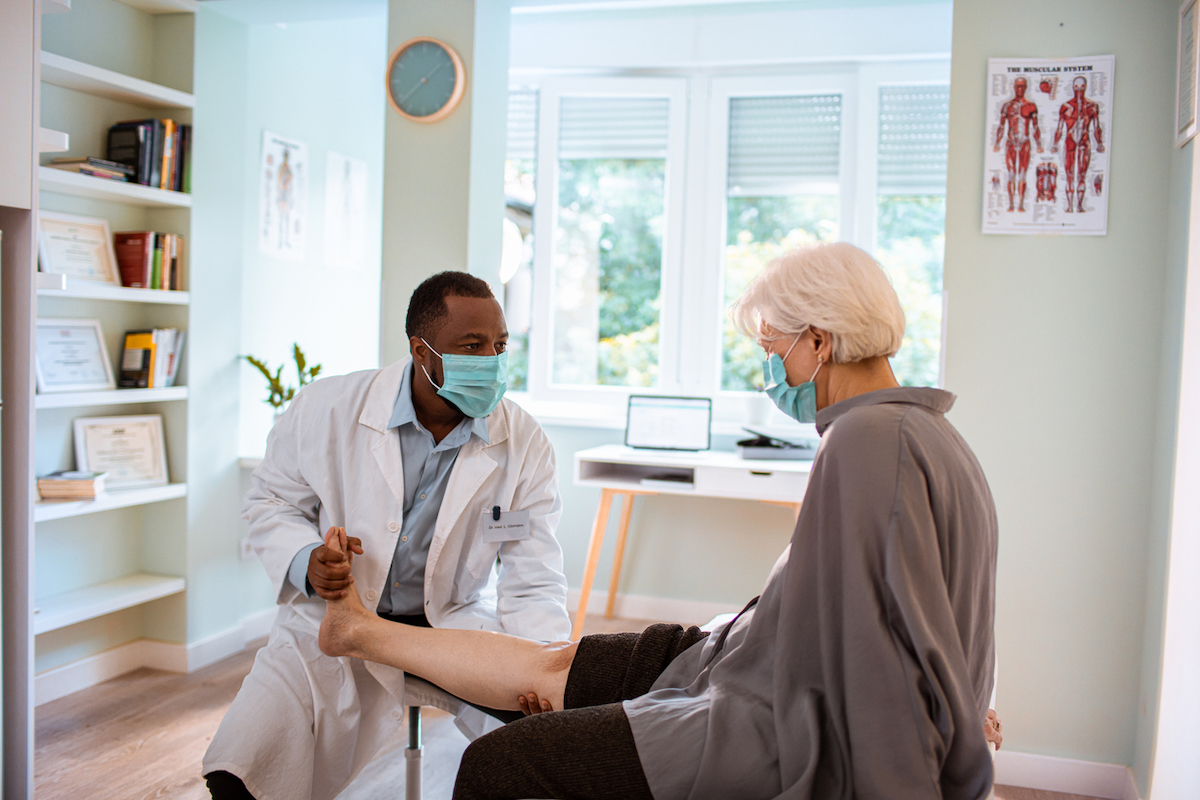But now that it’s starting to feel like life as we knew it in some ways, there’s the one doctor’s appointment you shouldn’t forget about this year, according to multiple MDs. Read on to find out what it is, and for a group of people who should be on the lookout in particular, check out If You Have This Blood Type, Your Dementia Risk Is High, Study Says. Amy Braddock, MD, a family medicine physician at the University of Missouri Health Care, says you shouldn’t hold off on rescheduling missed doctor’s appointments any longer, especially your yearly physical exam. “I would say it’s one of the most important things that we do—talking about preventative screenings and making sure that you’re up-to-date on all of your shots,” Braddock told KTVO, a dual ABC and CBS News affiliate in Missouri, in March.ae0fcc31ae342fd3a1346ebb1f342fcb “There are a number of vaccinations that are so important, especially for older adults to make sure that you’re maintaining,” Janice Johnston, MD, a family medicine physician in Arizona, told ABC15 in February. “Your flu shot, your pneumonia vaccine, even tetanus shot, which can help protect against whooping cough.” Physical exams usually include a blood pressure check, weight and height measurements, blood tests, cancer screenings, and other age-related exams, and are key to early detection of serious illnesses. Braddock says when friends and patients ask about the ideal time to reschedule checkups, she says, the “answer is now.” “As soon as humanly possible, pick up the phone and make that appointment, because there can be long-term consequences to delaying that care. So the sooner you can get back, the better,” she explained. And for more signs of health issues to be aware of, check out If You Notice This on Your Nails, Get Your Thyroid Checked, Doctors Say. Waiting too long to see a doctor could lead to future problems that could’ve been prevented. Johnston also told ABC15 that it’s key to do the “big three”—mammograms, prostate exams, and colonoscopies. “It’s really important to get cancer screenings on time, so there’s not a delay in the diagnosis,” Braddock pointed out. “If you put them off for months or years at a time, sometimes you’re missing opportunities to catch those diseases at earlier, more treatable stages.” Therese Bevers, MD, medical director of the Cancer Prevention Center at the MD Anderson Cancer Center, told NPR last summer that she too was worried about the number of people putting off regular doctor’s visits, and potentially suffering the consequences as a result. “People delaying their cancer screenings are being diagnosed at later, more advanced stages when treatments aren’t as successful as they are in earlier stages,” she said. “A woman is more likely to die from an advanced-stage breast cancer than she is from COVID-19.” And for more on what you may need to be screened for, check out Don’t Wait Until You’re Over 65 to Get Tested for This, Study Warns. Braddock says anyone with a chronic medical condition, like diabetes and hypertension, needs to be “monitored regularly.” Unfortunately, in Dec. 2020, the American Diabetes Association surveyed people in the U.S. with diabetes and found that 43 percent said they’ve delayed seeking routine medical care due to the pandemic because of the fear of COVID, which they’re more susceptible to having a severe bout of, or even dying from. According to the Centers of Disease Control and Prevention (CDC), heart disease, cancer, and diabetes are the leading causes of death and disability in the U.S. (though this year, COVID became the third biggest killer, behind heart disease and cancer). And for more up-to-date health news delivered right to your inbox, sign up for our daily newsletter. While the telehealth industry had been growing in recent years, the pandemic forced many doctors and patients alike who had never done virtual appointments to consider them. But because of how quickly the industry has had to adjust, Paul Hyman, MD, a family practitioner in Maine, told NPR doctors are learning in real time what a “virtual visit is providing and what it’s not providing.” And while he does see some benefits, like the ability to “really connect and listen without some of the distractions of a busy office and an exam room,” there are still some issues he feels strongly need to be addressed in person. “We don’t really completely understand sometimes what we’re missing because we haven’t really done medicine this way. I give the example of a patient whose heart is not working as well, and that’s causing fluid buildup in their body. For that specific patient, it would have been challenging to make the diagnosis over the video or a phone; it takes touching the patient, being able to listen to their heart, legs, look at their blood pressure and look at the veins in their neck to make that diagnosis,” he said. “Another one that I often worry about is dizziness. People can feel dizzy for many reasons. Some of them are very common and not concerning, but occasionally the reason is serious. It’s very hard to distinguish some of those reasons on a video trying to walk a patient through an exam.” Johnston also emphasized the importance of having a doctor check you out in person. “I can’t tell you how many times when I’ve been examining a patient or listening to their lungs that I find something on their back,” she said. And for more key symptoms to look out for, check out If You Notice This on Your Hands, Get Your Liver Checked, Doctors Say.



